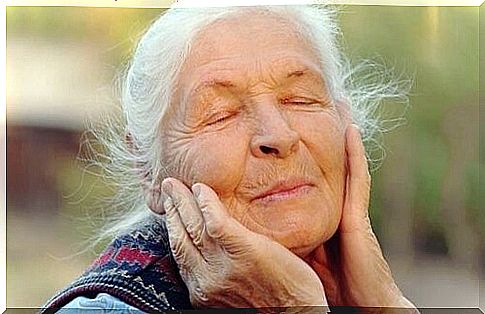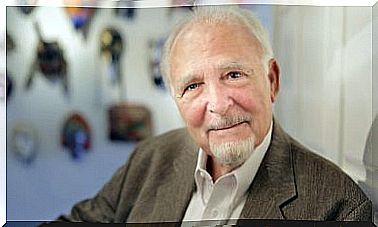Regulating Emotions In Old Age

Correctly regulating emotions in old age is an exercise for health and well-being. Interestingly, researchers have found information beyond physical and cognitive decline in several studies.
Older adults are, on average, much more attuned to positive emotions. They value social relationships and also have more control over their emotions.
Swiss philosopher Henri-Frederic Amiel said that knowing how to grow old is the masterpiece of mental health. He also said it is one of the hardest parts of life to master. This is not easy.
Reaching old age with the same optimism as a young person who has his whole life ahead of him is difficult. The key lies in looking at the present with humility, simplicity and positivity.
In old age we are confronted with a decline in our physical abilities and the progressive decline in our own abilities. However, the elderly are still able to maintain a subjective sense of happiness that deserves admiration.
The correct emotional regulation in this last phase of life is visible in a large part of the population. This thus helps regulate emotions in old age.

Regulating emotions in old age: the latest discoveries
The way in which the elderly regulate their emotions is a relatively new field. However, life expectancy has risen sharply recently, and it is clear that this segment of our population will be very important to our society in the coming years.
Thus , reaching our old age in the best possible condition is an essential challenge ahead of us. We are not just talking about physical well-being. Above all, we focus on the emotional plane.
This new field of research is maturing and continues to grow. dr. Derek Isaacowitz, an emotion expert at Yale University, has developed a technique for studying the attentional biases of older people.
He created glasses that capture the wearer’s physical response. The glasses record this data so that researchers can analyze it later.
This research has shown that 90% of older adults are more interested in faces that show positive emotions. That preference, that constant search for a smiling face, a warm appearance or a kind word, helps them to regulate their own emotions.
Experts believe that the brain appears to act as a cognitive mediator by focusing its attention on these stimuli. This in turn reduces negative emotions, and the brain fills with positivity that way.

Emotions do not deteriorate with the aging process
The first thing that happens during old age is a change in motivation. These long-term goals are limited to investing in a better quality of life in the present.
Therefore, the regulation of emotions in old age has a very specific purpose. The motivations are fixed. It tries to optimize the emotional experience to enjoy balance, inner peace and relationships with friends and family.
In turn, all this constitutes something known as the paradox of well-being in old age. As striking as it may seem, the elderly are on average more satisfied with their lives than young people.
This is because older people are better able to regulate their emotions. This mechanism does not show a deterioration that is so common or parallels the way the cognitive processes of older people decline.
For example, we know that aging mainly affects the frontal lobes of the brain. This area of the brain includes our attention, problem solving, and planning abilities.
However, emotions and our ability to interact with our environment through looks, smiles and positive reactions is something that remains intact. This ability withstands diseases as serious and distressing as Alzheimer’s disease.

Older age makes us more selective
In many cases we filter our reality when we are young. When we are young, we let everything come to us. We love to experiment with different things and people. We also accept everything with open arms and a willing heart. However, as we mature, we begin to use filters in our lives.
When we cross the threshold that leads to the last stage of life, a new vision emerges. We let go of the filters and become even more selective. We strive to prioritize and focus our attention only on things that can provide us with well-being and happiness rather than problems.
Psychologist and researcher Heiner Ellgring of the Max Planck Institute in Munich explained this phenomenon in his book The reasons and emotions of old age . According to him, older people focus on three aspects of life:
- enjoy relationships with family and friends
- invest in their health
- taking care of and enjoying different things like house, garden and animals
A positive life for an elderly person is one in which he or she can focus on these aspects. The subjective happiness lies in these factors. The social, relational and affective aspects are the most important.
Therefore, the key to positive aging is being selective and having clear priorities. For the elderly , enjoying positive emotions in everyday life is the number one priority.









